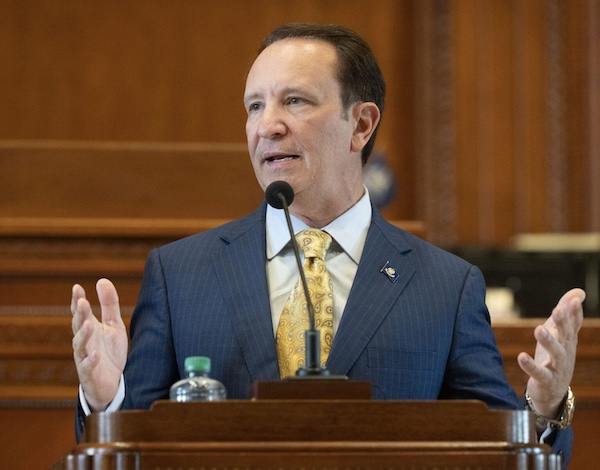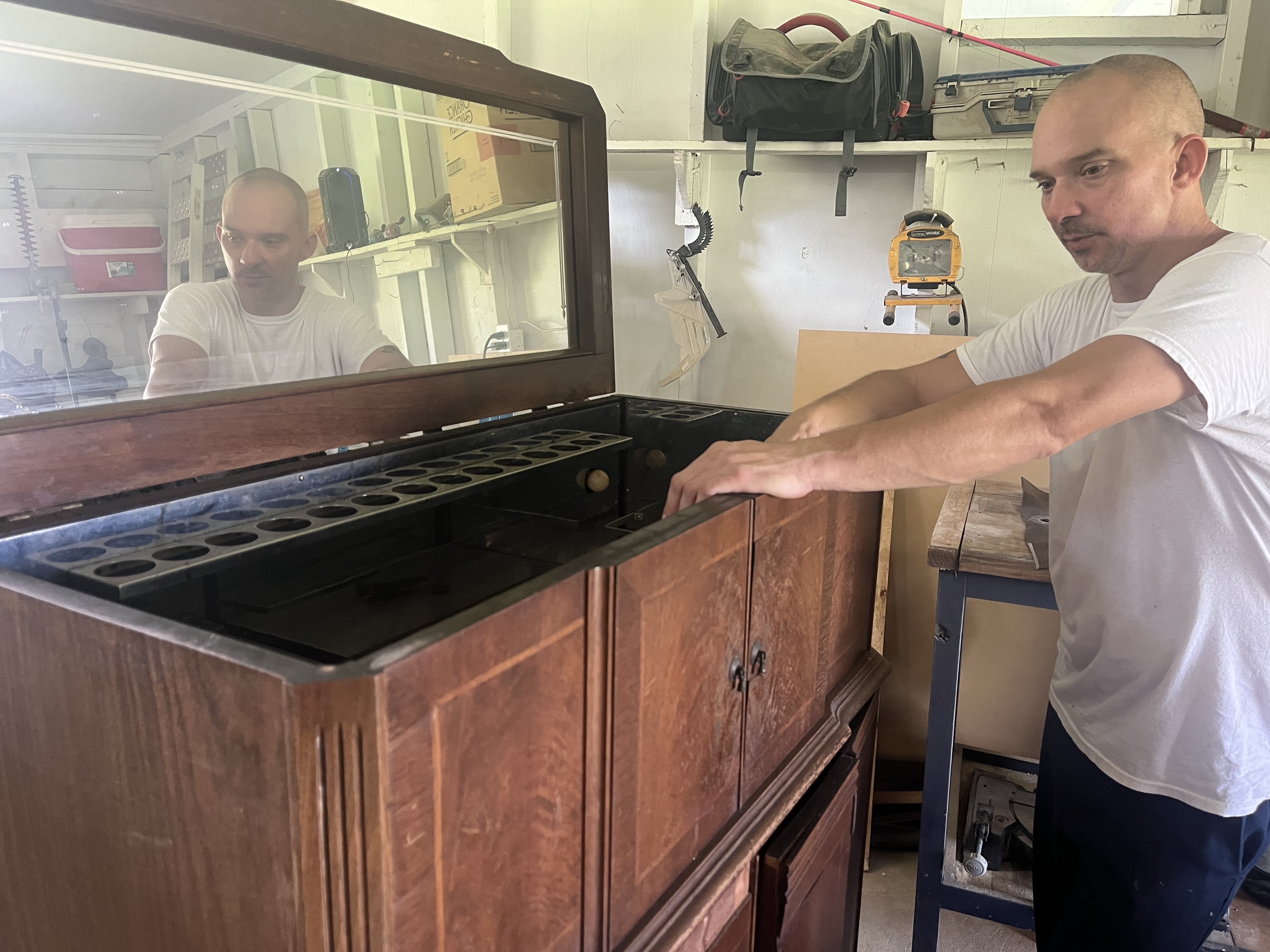Jim Beam column:Landry closing public records
Published 6:30 am Wednesday, August 7, 2024

- Louisiana's Republican Gov. Jeff Landry seems to be making new law when his administration shuts down public records.(Photo courtesy of the Louisiana Illuminator).
When it comes to releasing public government records, Gov. Jeff Landry has stolen a page out of former President Donald Trump’s playbook. The governor is citing “executive privilege” and “deliberative process” in order to deny records to members of the public.
The problem is that neither executive privilege nor deliberative process are found in the state constitution or in the state’s public records laws.
The dictionary defines executive privilege as “the privilege claimed by the president for the executive branch of the U.S. government of withholding information in the public interest.” Deliberative process refers to those records that explain how decision makers arrived at decisions they made.
The Advocate in its report on Landry withholding public records said when former Republican Gov. Bobby Jindal was in office Louisiana had a deliberative process exemption in state law specifically for the governor’s office. However, once Jindal used the exemption, state agencies also started using that as an excuse to withhold public records.
Former state Sen. Dan Claitor, R-Baton Rouge, sponsored the bill that became law to do away with the deliberative process exemption. It was Act 145 of 2015. Claitor said the public should get to see both what’s “on the surface and under the hood.”
OK, what records has Landry refused to produce?
The newspaper said a review of the governor’s first five months in office shows that in nearly a quarter of all public records requests his office fielded, his attorneys withheld records by citing deliberative process or executive privilege.
The records someone wanted were about legislative director Lance Maxwell’s communications on holding a state constitutional convention, Democratic Party leadership, changes to public records laws and puberty blockers for minors.
Steven Procopio, president of Louisiana’s nonpartisan Public Affairs Research Council, talked about records that had been requested pertaining to a rash of resignations at the state Department of Environmental Quality. Those who refused to produce them cited a constitutional right to privacy.
“I can’t see the legal justification for it,” Procopio said. “Because they’re doing this in a very broad way and using exemptions that don’t seem to have legal standing, it’s preventing the public’s right to know what their government is doing.”
Terry Ryder, who served as a senior attorney to three former governors, said, “You just can’t make up law. There’s no such thing as executive privilege or deliberative process privilege if it’s not in law.”
The Advocate said Landry’s administration declined to answer detailed questions about its use of deliberative process and executive privilege. Kate Kelly, the administration spokesperson, added more confusion to the issue when she said the governor’s office has “never denied a public records request.”
“Every record request has been answered in compliance with the law,” Kelly said. “We may ask for clarification and never hear back from the requester, but we never just deny a request.”
When you ask people requesting public records numerous questions about why they want them, it’s easy to understand why they simply throw in the towel. The public records laws don’t include that requirement.
Former state Rep. Barry Ivey, R-Baton Rouge, sought communications between Landry and members of his executive staff about their attempts to return to closed political party primaries. He was told some records were being withheld under deliberative process and executive privilege.
Ivey said the reaction he got made it obvious Landry’s administration was making sweeping changes to public records that don’t exist in current law. He said that should be a red flag for anyone concerned about government accountability.
The Advocate said Louisiana’s constitution states “no person shall be denied the right” to observe public bodies and examine public records, except in cases in law. Some governor’s records are exempt, but the other excuses being used by the Landry administration to withhold public records don’t exist in state law.
More than half of the public records requests filed with Landry’s office during his first several months came from out-of-state requests. Unfortunately, a change made at a secret meeting on the last day of the recent legislative session says Louisiana’s public records are only open to in-state citizens.
Many out-of-state organizations and individuals need and deserve to see the state’s public records. Louisiana is not an island among the other 49 states.
Jim Beam, the retired editor of the American Press, has covered people and politics for more than six decades. Contact him at 337-515-8871 or jim.beam.press@gmail.com.





